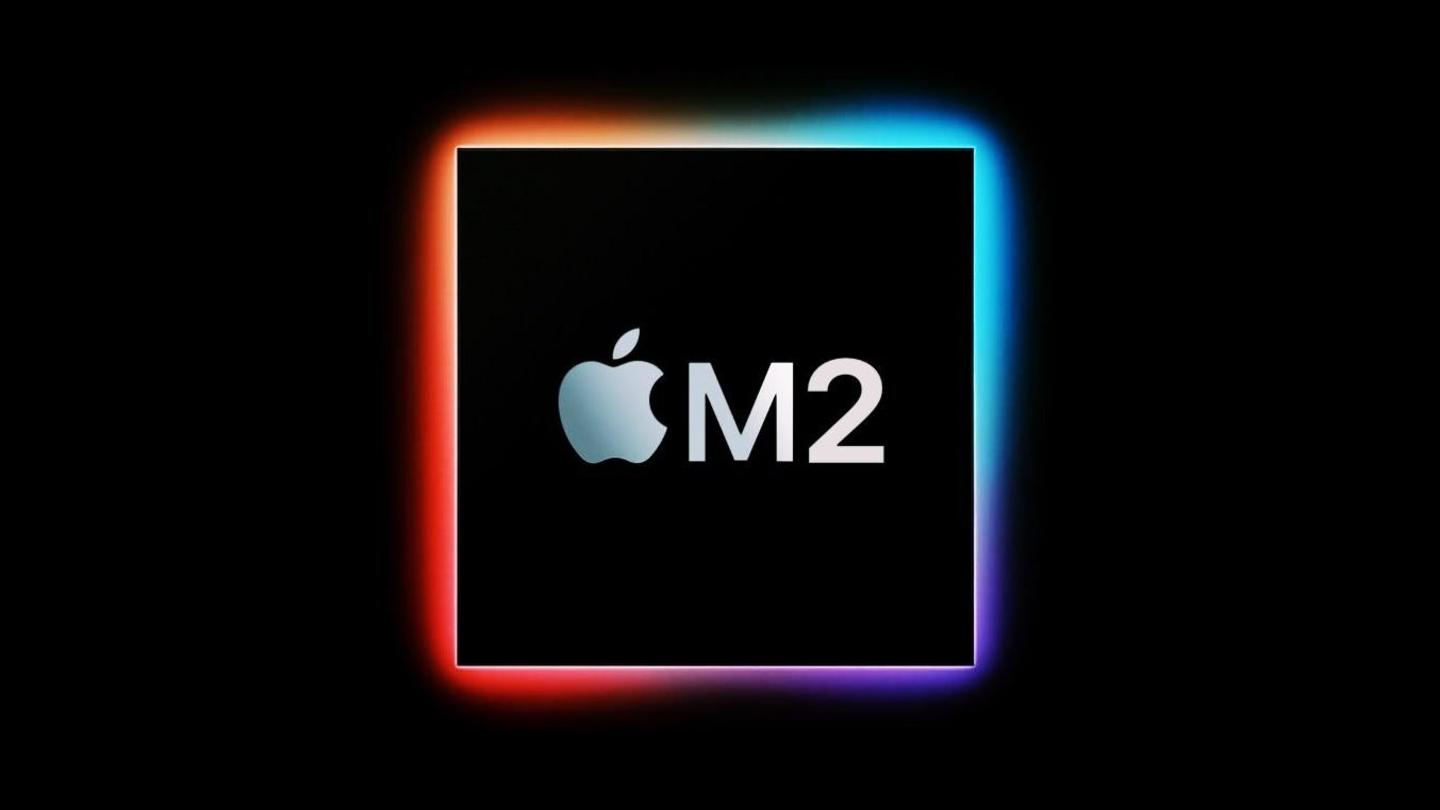
Apple's upcoming M1 chip's successor has reportedly entered production
What's the story
Apple made headlines when it announced a transition from Intel CPUs to its custom-designed processors in 2020. Since then, the M1 chip has featured in devices including the recently launched iPad Pro, 13-inch MacBook Air, and MacBook Pro.
Uncorroborated industry sources told Nikkei Asia that Apple's next-generation system on a chip (SoC), likely to be marketed as the M2 chip, has entered mass production.
M1’s significance
M1 processor marked shift from Intel to Apple's own Silicon
Apple claims that the M1 processor packs a CPU that's 85 percent faster than an Intel-based iMac. The company also claims that graphics performance is twice as fast as that iMac.
The M1 processor is based on ARM architecture, unlike Intel's processors which use the largely unchanged x86 architecture since 1978. So, Apple had to optimize applications to utilize the new SoC's performance benefits.
Details
M2 chip being manufactured at TSMC using 5-nanometer plus process
Nikkei Asia reported that the new SoC is being produced by long-time Apple supplier Taiwan Semiconductor Manufacturing Co. (TSMC).
The M2 SoC is based on the chip maker's latest "5-nanometer plus" manufacturing process.
However, chip shortages that hit GPU manufacturers and carmakers are expected to last until 2023. We believe that this could directly impact the pricing for Apple's M2-powered devices.
Production schedule
M2 processors could ship as early as July: Nikkei Asia
Additionally, Nikkei Asia reported that shipments for the new Apple M2 processors could begin as early as July, in time for them to feature in MacBooks slated for release in the second half of 2021.
XDA-Developers speculated that the 14-inch and 16-inch MacBook Pro sporting Apple Silicon haven't debuted since there isn't a 12-core processor design yet, which could be called the M2 chip.
Wait for WWDC
Taiwan Silicon shortage could defer Apple's M2 release plans
Both Apple and TSMC declined Nikkei Asia's request for comment.
Although the rumor could be true since the larger MacBook Pros haven't been released yet, but it should be taken with a pinch of salt.
We will have to wait until Apple's Worldwide Developers Conference (WWDC) in July to find out more.